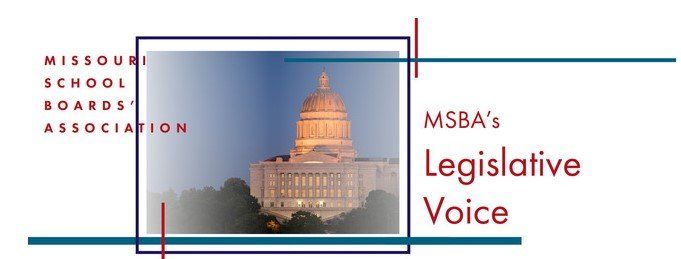
Earlier this month the U.S. Department of Education circulated a letter outlining the first steps in response to President Biden’s earlier Executive Order directing federal agencies to review the previous administration’s overhaul of Title IX. In outlining these steps, the Department announced that OCR is conducting a comprehensive review and gathering feedback to determine whether changes and additions to Title IX regulations are required to meet the spirit of the Executive Order. That includes conducting public hearings to address the current regulations and to invite insights on sexual harassment in schools, including sexual violence and discrimination based on sexual orientation and gender identity. These announcements arrive amidst polarized political debates in many states related to whether transgender students should be accommodated in schools or school sponsored activities. This debate continues in Missouri as the Missouri House recently advanced legislation that requires athletes to compete on teams according to their assigned sex at birth.
With the ongoing debates, and the likely court battles that will ensue if the legislation is passed, we wanted to take this opportunity to discuss the status of Title IX and the legal decisions related to transgender students.
TITLE IX: The DOE’s Review and any determination to change the Title IX Regulations will take time under the rulemaking process—so the Trump-era changes to Title IX remain the law for now.
During Betsy DeVos’ tenure at the Department of Education, Title IX was overhauled, specifically to require more due process rights for students accused of sexual harassment. Those changes, largely geared towards college campus investigations and determinations, have been criticized as potentially re-victimizing victims of sexual harassment. And, while these changes arose in response to college campus issues, they impact how sexual harassment is processed in public school districts. The Trump-era standard requires equitable treatment of complainants and respondents, objective evaluations of the evidence, presumptions of innocence for the accused, and different processes to be employed by the Title IX Coordinator, Investigator, and Decision-maker. In addition to this, both complainant and respondent get an equal opportunity to review all the evidence, gather evidence, involve representatives (attorneys), attend interviews of witnesses, and propound questions to the other side. With these requirements come a number of deadlines to accomplish these steps and training requirements for district officials involved in the process.
Despite the Executive Order and the letter from the DOE, these Trump-era regulations will remain in place until the regulations are changed—what we are seeing now from the DOE serves as a precursor to that process. Before the Regulations can be changed, the rulemaking process requires advanced notice of the change, proposed changes, a public comment period, the finalization of the rule, and, typically, judicial review (when new rules are challenged in court).
Transgender Students: Title IX’s relationship to the discussion on transgender students and the status of the law in federal courts and Missouri courts continues to evolve.
Biden’s January 20th Executive Order cited to the recent Supreme Court decision Bostock v. Clayton County: “Under Bostock’s reasoning, laws that prohibit sex discrimination — including Title IX … — prohibit discrimination on the basis of gender identity or sexual orientation.” While Bostock was a Title VII-employment case, its general application to laws that prohibit sex discrimination similarly apply to Title IX matters. Biden’s Executive Order cemented this point by requiring federal agencies to codify into their existing regulations, including Title IX regulations, Bostock’s reasoning that laws that prohibit sex discrimination also prohibit discrimination on the basis of gender identity and sexual orientation.
However, until this change process shakes out, many laws and regulations that prohibit sex discrimination remain unsettled as to transgender student issues. Cases involving transgender students continue to be litigated under federal and state law. Courts have provided guidance on how they view allegations of discrimination against transgender students.
In Bostock, the Supreme Court defined the word “sex” in Title VII to include sexual orientation and gender identity as well as gender. This definition expanded the previous interpretation of “sex” that focused on gender (but not orientation or identity). While the Bostock analysis has not been extended by the Supreme Court or the 8th Circuit to Title IX, Title IX and other federal laws also prohibit discrimination “because of sex.” The definitions, standards, and prohibited forms of discrimination in Title VII, Title IX and other federal laws are all very similar and often interchangeable.
The 4th Circuit recognized this point in the case Grimm v. Gloucester Cnty. Sch. Bd. This case hinged on the definition of “sex” and had been pending before federal courts for several years. When the Supreme Court published Bostock, the 4th Circuit Court of Appeals applied the Bostock definition of “sex” to include sexual orientation and gender identity as well as gender. Gavin Grimm, a student, identified as a male, changed his birth certificate designation to male, and requested to use the men’s restrooms at school. In response to this request, his school district created a policy that prohibited students from using designated male or female restrooms that were different from the student’s sex at birth. In applying Bostock, the 4th Circuit held that a policy that outright prohibits a transgender student from using a restroom of their identified gender meets the definition of discrimination based on sex.
Missouri Courts have previously decided that “sex” under the Missouri Human Rights Act did not extend to gender identity or sexual orientation. However, more recent decisions have prohibited discrimination based on sex-stereotyping (i.e. discrimination against someone for not conforming to stereotypical gender norms). With the Bostock decision and recent sex stereotyping decisions, it seems likely that Bostock’s analysis will be adopted by Missouri Courts. In R.M.A. v. Blue Springs, for example, the Missouri Supreme Court found that a student made a viable MHRA public accommodations claim because he sufficiently alleged a school district denied him access to the boys’ restroom and locker rooms at his school and because “sex” contributed to the denial of the restroom and locker room.
While approaches vary from one presidential administration to another, Bostock and recent decisions in Missouri provide insights on how courts will view claims of discrimination based on sexual orientation or gender identity going forward—and these decisions provide guidance to school districts in making decisions. While the Department of Education embarks on its review of Title IX in light of the Bostock decision, we will monitor and continue to provide updates.
Sign Up For Our Mailing List
We will get back to you as soon as possible.
Please try again later.
Recent Posts



Columbia Office
Independence Office
Lake St. Louis Office
Springfield Office
2833 E. Battlefield Street
Suite B 100
Springfield, MO 65804
Fax: (816) 252-9009
HAVE AN INVOICE?
© Copyright 2024 EdCounsel, LLC
The choice of a lawyer is an important decision and should not be based solely upon advertisements.

